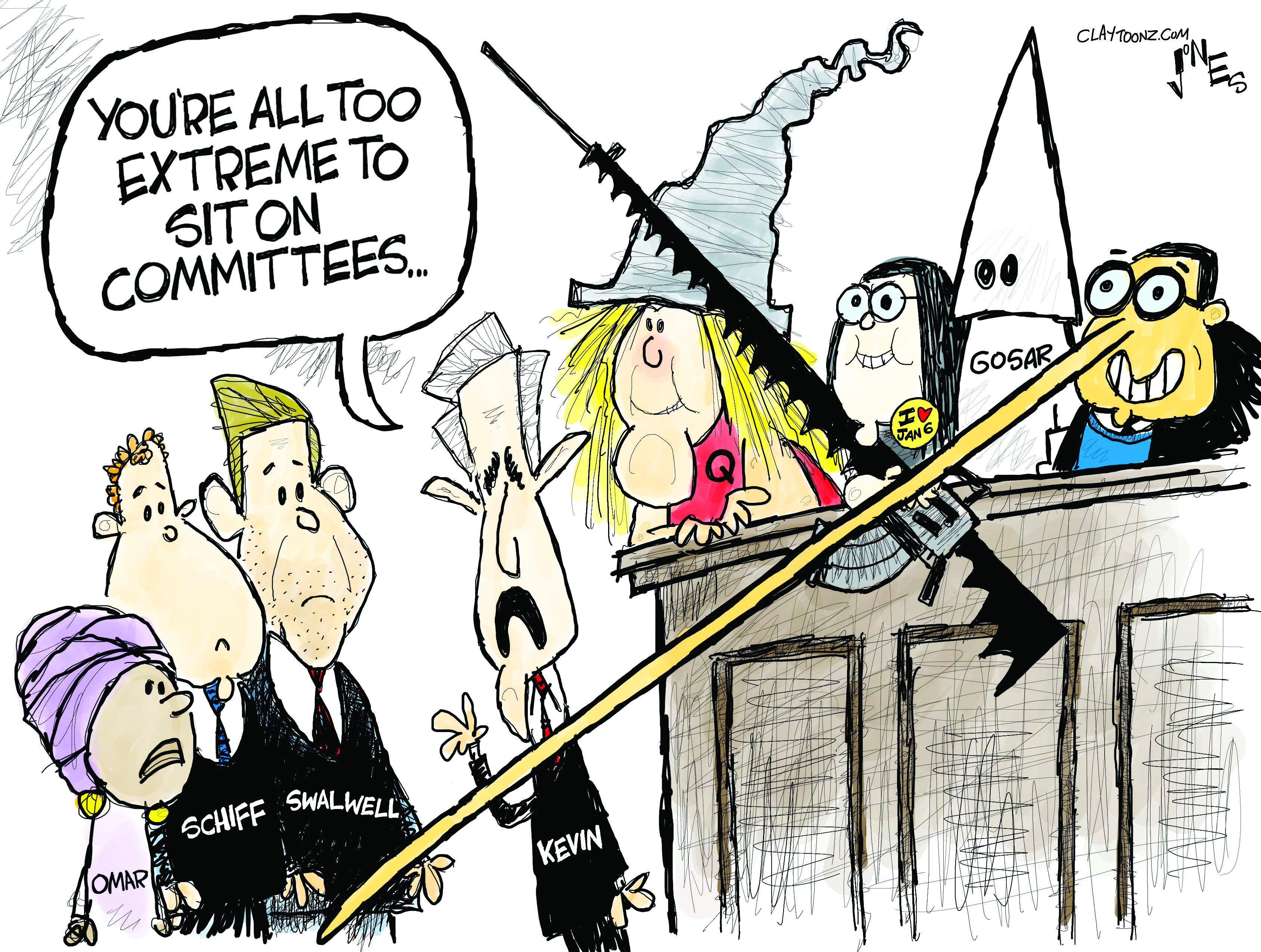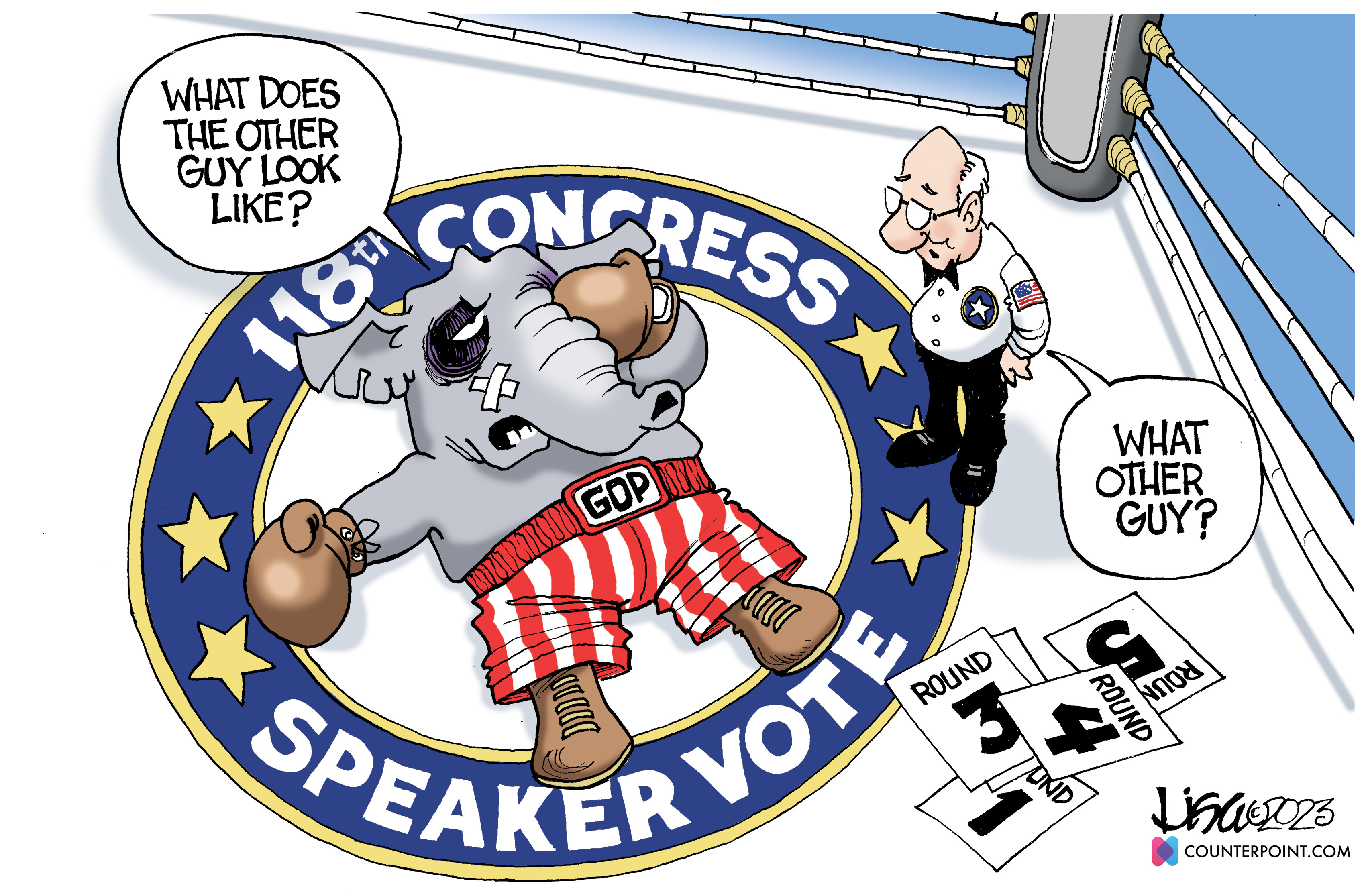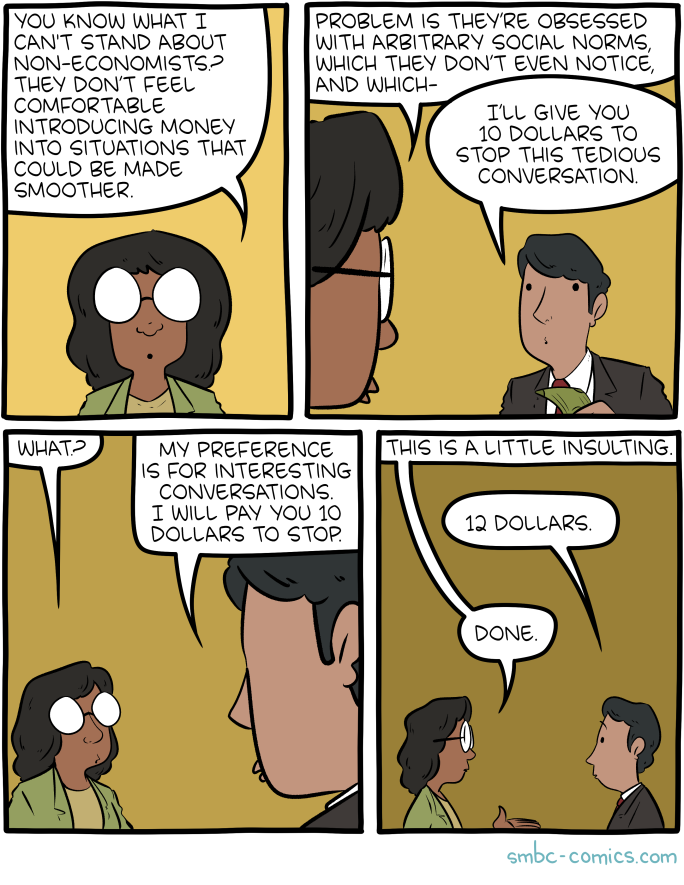We cannot mistake absurdity for lack of danger. ... Absurdity always makes you think something is more benign than it is.
- Jon Stewart, on George Santos
This week's featured posts are "Gas stoves, freedom, and the politics of distraction" and "How can Democrats win back rural America?".
I will warn you that this week's summary is unusually long, being the first one in three weeks. I used the time away from the Sift to focus on public speaking. One talk: "Whatever happened to the citizen journalist?" examines the good and bad ways the internet has changed news, using the history of the Weekly Sift as an example of (what I hope is) good change. I also led a church service, but the YouTube isn't up yet.
These last three weeks everybody was talking about the new Congress

In an otherwise disappointing set of midterm elections for Republicans, they did manage to eke out a small majority in the House of Representatives. They did that largely by running against inflation and crime, while GOP candidates who focused on election denial and other extreme MAGA issues tended to fail -- unless (like Marjorie Taylor Greene and Matt Gaetz) they were in districts that any Republican could win.
But now that Kevin McCarthy has secured the speakership, we're hearing virtually nothing about inflation and crime (probably because Republicans never had a plan to deal with either). Instead, the focus has been on setting up a debt-ceiling crisis to force Democrats to agree to long-term cuts in Social Security and Medicare, as well as getting revenge on Democrats and on government officials who investigated the crimes of President Trump.
The sleight of hand reminds me of a passage in Thomas Frank's 2004 book What's the Matter With Kansas?.
The trick never ages; the illusion never wears off. Vote to stop abortion; receive a rollback in capital gains taxes. Vote to make our country strong again; receive deindustrialization.
Republicans could have run on cutting Social Security so that billionaires and corporations can keep the benefits of the Trump tax cuts. But they would have gotten clobbered, so they didn't.

Rep. Russell Fry (R-SC) gives the new GOP House majority credit because "We fired 87,000 IRS agents." I'm glad to see the 87K IRS agents incident come to a successful conclusion. I am reminded of the Khrushchev quote that provides the title for Rick Perlstein's book The Invisible Bridge:
If the people believe there’s an imaginary river out there, you don’t tell them there’s no river there. You build an imaginary bridge over the imaginary river.
On a party-line vote, the House established a new Select Subcommittee on the Weaponization of the Federal Government, which will be chaired by Jim Jordan, a suspected January 6 conspirator who defied a subpoena from the January 6 committee. Its Republican members will include numerous election-deniers, and even Scott Perry, who is alleged to have sought a pardon from Trump for his role in the attempted coup.
If you want to consider what "weaponization of government" really looks like, read the NYT's look back on the Durham investigation and the Durham/Barr relationship. You can expect Jordan's committee to serve the same purpose Durham's investigation did: It will provide plenty of fodder for Fox News hosts to speculate about the horrible crimes and scandals the committee is about to uncover, but it won't actually uncover anything significant. Afterwards, regular Fox-watchers will believe that it did find something, but they either won't be able to give you details about whatever it was, or they will recall testimony that in fact never happened.
(Occasionally I still see people wearing t-shirts pledging to remember Benghazi, and I always wonder how much of what they recall is real.)
George Santos has been the comic relief of the new House majority. Every few days has produced either the explosion of some outrageously false claim he made, or evidence of some grift in his past.
So far, the GOP and Speaker McCarthy have been unable or unwilling to remove Santos, partly due to McCarthy's small majority (which can't afford to lose Santos' vote), and partly because grifting is now deep in the party's identity.
and violence
It was a bad week for squeamish viewers of the news. Video from January 7 of Memphis police beating Tyre Nichols (who died from his injuries) was released. And we also got to see video of the Paul Pelosi attack. California has also had six mass shootings in January.
The Nichols video led to protest marches over the weekend, but they seem to have stayed peaceful, with rare exceptions that Fox News naturally highlighted. (The worst they could find was a guy who was arrested in New York for kicking in the windshield of a police cruiser. He and two others were arrested. The police were unharmed.)
I suspect that the reason the protests were peaceful was that Memphis has taken the incident seriously. It fired the five officers quickly, and has now arrested and charged them with second-degree murder. It also has disbanded the unit the officers belonged to. Now we'll see if the city (and other cities) follows up with police reform.
A point the press sometimes misses is that public anger usually isn't about the event itself, but about the official response to the event. If the public is confident that the institutional response will be prompt and appropriate, protest isn't necessary.
The most irresponsible coverage I saw came from Tucker Carlson, who (based on apparently nothing) warned his viewers that Antifa would be organizing riots in major cities.
These riots, of course, did not happen, and it's not clear that an organization called "Antifa" with the capability of organizing a national string of riots even exists. Tucker did an amazing job of making his lack of any actual facts sound ominous:
Antifa is being organized. By whom? We don't know. Why don't we know? To do what? We can't say right now. But we know for certain that in cities across the country right now, Antifa is mobilizing to commit violence. This is a political militia. So the question is: Who's benefiting from it? Those are the people you ought to be asking questions of.
Maybe, though, we don't know much about Antifa because there's not much to know. Maybe it's not an organization, but just a label that Fox attaches to certain kinds of events, including a lot of events that don't happen.
and the Georgia grand jury
Earlier this month, the Georgia grand jury investigating Trump's attempt to reverse Georgia's 2020 presidential election result submitted its final report. Tuesday, a judge yielded to Fulton County District Attorney Fani Willis' request to keep that report sealed for now, so we don't know whether the grand jury recommended any indictments for Trump or any of his henchmen. (This was a special grand jury impaneled to investigate, but without the power to indict.)
Willis, however, has seen the report, and her reasons for keeping it sealed implied charges are coming for someone:
Willis argued Tuesday that disclosing the report now could violate the rights of potential defendants and could negatively affect the ability to prosecute those who may be charged with crimes.
The airwaves are full of speculation, but I think we just need to wait and see. Willis said a decision on criminal charges is "imminent", which could mean days or weeks, but probably not months. That's the extent of my speculation. If you want more, the Christian Science Monitor does a good job of presenting why Trump might or might not be charged.
and classified documents
Biden's classified document problem muddied the waters, and now Mike Pence's similar issue threatens to turn it all into a farce. I stand by what I wrote last week, and extend the argument to cover Pence: While the Trump, Biden, and Pence situations have a surface similarity that makes them politically difficult, they are unrelated legally, and I hope the Justice Department pursues the three investigations separately. Whether or not Trump committed indictable crimes has no bearing on whether Biden or Pence did.
Some writers are trying to turn this into a discussion about overclassification and the bloated system of classified documents. Those are legitimate concerns, but I don't see the relevance. Whether you have one classified document or a thousand, you should take care of them, even if nothing in them seems all that important.
It's like stop signs. When you're driving in the middle of the night, it seems really stupid that there are all these stop signs. But you should stop anyway.
and China's declining population
One of the odder stories of the last few weeks has to do with China losing population. You'd think this would be a positive development, given how hard China has worked over the years to control its population. A flat or declining population in China could be the harbinger of a flat or declining world population. That would lessen the human strain on the planet's carrying capacity, and maybe lead to a future of abundance rather than destitution.
Strangely, though, most coverage of the story was doom and gloom. The NYT framed the decline as a "demographic crisis", and followed up with an explanatory article two days later: "Why China's Shrinking Population is Cause for Alarm".
The alarms ringing at the NYT include (1) fewer young-adult Chinese could force businesses to move factory work to other countries (like Mexico and Vietnam); and (2) fewer Chinese consumers could shrink the global market for goods. In addition, there's the internal-to-China problem of elder care, caused by the combination of low birth rates and higher life expectancy.
But I'm having trouble seeing the "cause for alarm". If more Chinese are, say, living into their 80s, that probably means that many Chinese in their 70s are still pretty spry, and might be able to do some caretaking themselves. And if the world needs less production because there are fewer people consuming stuff, that just doesn't seem like a problem to me.
Wired shares my sanguine attitude. For a variety of reasons, its article explains, countries that fall below 1.5 children per female have a hard time returning to replacement-level fertility. But while that means the population on average gets older, it doesn't have to become proportionately sicker, more feeble, and less productive.
Fears about population aging are often guided by the false idea that older people are homogeneously ill, dependent, and unproductive. In fact, the average health of people over 60 has improved dramatically over the past decades. ... We recently calculated the health-adjusted dependency ratio—the proportion of adults with the same or more aging-related disease burden as the global average 65-year-old—in 188 countries. Using this measure, we could demonstrate that many of the world’s chronologically oldest countries have the same or even lower aging-related burden than many of the world’s chronologically youngest countries. Our work suggests that China can effectively stay younger by investing in the health of its aging population.
In summary:
Measures that improve education, productivity, and health across the lifespan would ease the transition to a world with fewer children. It is possible for China—and the rest of the world—to decline and prosper.
A declining population will require some adjustments. But on the whole, I suspect it presents an easier set of problems than endless growth.
A side note: China's success in controlling its population means that India's population should pass China's sometime this year.
and gas stoves and other nonsense
That's covered in one featured post.
but you might want to think about rural rage
and that's the topic of the other.
and parents whose children question their gender identities
The NYT had a thought-provoking article "When Students Change Gender Identity, and Parents Don’t Know", focusing on parents' anger at teachers and schools when their kids start "socially transitioning" at school (using a different name, going to a different bathroom, etc.) and no one tells the parents. Columnist Michelle Goldberg followed up with "Trans Kids Deserve Private Lives Too".
OK, I understand that there's a lot here I can't relate to from my own experience: I've never struggled with my gender identity and I've never been a parent. But there seems to be one point that the complaining parents (both in the article and in the comments) are refusing to grasp: The important communications problem is between them and their kids, not between them and the school.
Again and again, parents cast the school as taking an active role:
But dozens of parents whose children have socially transitioned at school told The Times they felt villainized by educators who seemed to think that they — not the parents — knew what was best for their children. They insisted that educators should not intervene without notifying parents unless there is evidence of physical abuse at home.
But the "intervention" here is just respecting the student's confidence. (Goldberg raises the example of whether teachers should tell Muslim parents that their daughter has stopped wearing a hijab at school.) If a student is talking to a school counselor about gender issues, that's because the student raised those issues. Counselors are not roaming the halls looking for kids they can convince to change gender.
To me, the idea that a child's teachers are all agents of the parents sounds horrible. Children of my friends have occasionally shared secrets with me, and I have always kept them. As long as they weren't planning to commit suicide or harm someone else, I hope I always would. It's normal for kids to have thoughts they believe their parents wouldn't approve -- I certainly did -- and it's a blessing to have other adults you can talk to.
If parents are concerned about their child's gender identity, they should talk to their child directly, not expect teachers the child has trusted to betray that trust.
I ran the note above past a friend who is trained to counsel youth on gender issues, and they pointed me to the book Far From the Tree by Andrew Solomon, which you can look at here.
Solomon, who is gay, is writing about the challenges of parent/child relationships where the child differs from the parent in some way that the parent finds hard to accept. He introduces the useful distinction between vertical identity (the traits that parents and children share that make identification in both directions easier) and horizontal identity (the ways they differ that make identification harder).
Every child, he proposes, has some of both. So in his model, cis parents of trans children are experiencing a magnified version of a problem that every parent faces. I like this model because it encourages empathy for all concerned. Solomon writes:
There is no such thing as reproduction. When two people decide to have a baby, they engage in an act of production, and the widespread use of the word reproduction for this activity, with its implication that two people are but braiding themselves together, is at best a euphemism to comfort prospective parents before they get in over their heads.
My friend also pointed out why understanding the wide range of gender identities might be useful to someone who feels uncomfortable in their assigned gender: If all they know is the male/female dichotomy, they may interpret their discomfort to mean that they must be of the opposite gender, rather than something more nuanced. My friend attributed at least some of the examples of detransitioning -- undoing a gender transition later in life -- to this sort of confusion. (A recent Atlantic article urges us to take the detransition phenomenon seriously, while also not exaggerating its frequency.)
and you also might be interested in ...
Trump will soon be back on Facebook, and probably Twitter too. He was banned partly for spreading misinformation, but mostly for fomenting violence on January 6. We'll see how long he can go before fomenting violence again, and how the platforms will respond when he does.
If you believe, as I do, that his act is getting old even for some people who have supported him in the past, then giving him more exposure might work against him now.
Ukraine will get tanks: American M-1s (eventually), German Leopard IIs, and British Challengers.
At the moment the front line in this war is mostly static, with a slight momentum for the Russians. Both sides are expected to launch offensives when the weather improves. The Economist (behind a paywall) has been generally pro-Ukrainian in its coverage, but recently it sounds like it's spinning some disturbing facts. In an otherwise upbeat article about Ukrainian prospects, it says:
Ukraine’s edge in battlefield manpower is eroding, now that the Kremlin has mobilised 200,000-300,000 soldiers and may soon call up more. With Russia’s arms factories working triple shifts, Ukraine cannot outmatch it in brute firepower, given the West’s depleting stocks of arms.
I am uncomfortably reminded of the American Civil War. For a moment, put aside your feelings about the morality of either war and just look at the military situation: The North was richer and more populous than the South, so it had tremendous advantages in a war of attrition. The South generally had better leadership and higher morale, so it enjoyed much early success.
The war turned in the North's favor when General Grant took command and accepted that if the war became a meat grinder, Lee's army would be ground up first. He made a horrifying decision, but it did lead to victory.
I don't think Dianne Feinstein (who will turn 90 in June and is rumored to be suffering mental decline) has announced her retirement yet, but Democrats are lining up to compete for her Senate seat in 2024. Adam Schiff and Katie Porter have already announced, while Ro Khanna and Barabara Lee are making up their minds.
I've always liked Schiff, but my unresearched impression is that Katie Porter is something special. It's early, though, and the campaign may change my mind.
In other way-too-early election news, Ruben Gallego is challenging Kyrsten Sinema in the Arizona Democratic Senate primary. Republican Kari Lake has tagged him as "the AOC of Arizona", which she seems to think is an insult.
The arrest of Charles McGonigal, the former head of counter-intelligence in the FBI's New York office, opens up lots of room for speculation about what happened in 2016. Allegedly, McGonigal was being paid by Russian oligarch Oleg Deripaska, who was also the guy who paid Trump campaign chair Paul Manafort millions of dollars.
Two moments when the FBI's New York office may have tipped the scales in Trump's favor stand out: (1) James Comey reopening the Hillary-email investigation just days before the 2016 election, allegedly out of fear the New York office would leak something, and (2) the NYT's influential pre-election headline "Investigating Donald Trump, F.B.I. Sees No Clear Link to Russia", which was based on anonymous "law enforcement officials".
Timothy Snyder thinks there's something there, but Marcy Wheeler disagrees. I don't know enough yet to say. (Snyder's blog is on Substack, which will ask you to subscribe, but let you read the post even if you don't.)
The Miami Herald has a report on the teacher-training sessions for teaching the State of Florida's new civics standards. (It's paywalled, but you should get one article free.) The training was described by one teacher as "straight-up indoctrination". Another commented: “It was a bit different than a typical training. [Previously, trainers would] show us how to teach the information. But this time, instead of being shown how to implement the standards, they kind of went the opposite way. They presented this history as if none of us had learned it before.”
Basically, slavery and church/state separation are minimized, originalism is presented as the only legitimate way to interpret the Constitution, and the importance of Christianity in founding the US is emphasized. These are supposed to be taught as facts, not as issues knowlegeable people disagree over.

Maybe you've seen those billboards claiming that a fetus has a heartbeat 18 days after conception. They're usually accompanied by a picture of a baby, or maybe a fetus that looks almost fully formed.
I've been glad to see recent articles in both The Guardian and the NYT give a more realistic view of what gets removed from a woman during an early-term abortion. At five or six weeks, "the embryo is not typically visible to the naked eye". What shows up in a post-abortion tissue examination is mostly the gestational sac, which is still tiny and looks nothing like a baby.
The image below is after seven weeks, and the gestational sac is about 3/4 of an inch wide.
Patients may come in for an abortion fearful at this stage, having read through forums or looked at images online. “They’re expecting to see a little fetus with hands – a developed, miniature baby.” Often, she says, “they feel they’ve been deceived.”

On Vox, Ian Milhiser writes about the sudden resurfacing of laws that became irrelevant after the Roe decision, which haven't been looked at by courts at least since 1973, and possibly a lot longer. Today, many of these laws would probably be considered unconstitutionally vague (like when they use terms like "indecent"). But they're suddenly applicable again, even though nobody is sure what a court would say they mean. One such law is the 1873 Comstock Act, which says:
Every article, instrument, substance, drug, medicine, or thing which is advertised or described in a manner calculated to lead another to use or apply it for producing abortion, or for any indecent or immoral purpose ... Is declared to be nonmailable matter and shall not be conveyed in the mails or delivered from any post office or by any letter carrier.
But current DoJ policy
argues that the Comstock Act should be read narrowly to permit abortion-inducing drugs to be mailed “where the sender lacks the intent that the recipient of the drugs will use them unlawfully.” This memo signals that, at least as long as President Joe Biden holds office, the DOJ will not prosecute mifepristone manufacturers and mail-order pharmacies under the Comstock Act — although it remains to be seen what happens if a Republican takes over.
Milhiser summarizes:
So, to summarize, abortion providers face a crush of older and uncertain restrictions, many of which can at least plausibly be read to prohibit them from performing very basic tasks — such as receiving a supply of mifepristone in the mail. State lawmakers have prepped a wide range of bills adding new restrictions to medication abortions. And the federal judiciary and many state courts are dominated by Republican appointees who reasonably can be expected to read abortion restrictions expansively, regardless of what the law actually says.
That’s bad news for anyone who needs a medication abortion.
Rhonna McDaniel won a fourth term as Republican National Committee chair, defeating Harmeet Dhillon. Dhillon, a Sikh woman, faced what Politico called a "whisper campaign" targeting her faith. She tweeted:
To be very clear, no amount of threats to me or my team, or bigoted attacks on my faith traceable directly to associates of the chair, will deter me from advancing positive change at the RNC, which includes new standards of accountability, transparency, integrity, and decency.
After supporting a presidential candidate who called for a "total and complete shutdown on Muslims entering the United States", Dhillon must have been horribly shocked to discover religious bigotry inside the GOP. Perhaps she should consider joining the Leopards Eating People's Faces Party.

and let's close by getting out the vote in an important election
Voting is open to name the next set of Minnesota snowplows. My choices: Best in Snow, Han Snowlo, Mighty Morphin Plower Ranger, Sleetwood Mac, Plower to the People, and Alice Scooper.







